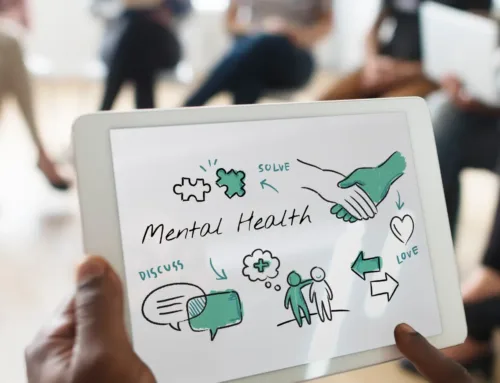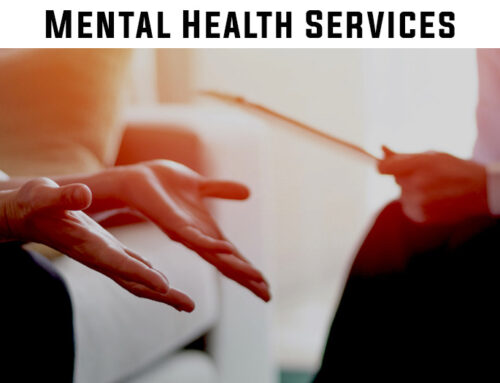Good mental health is essential to life, like good physical health. Advice on taking care of your body represents a constant flow of information. But what you did, whom you addressed, and how you cared for your well-being were unknown for a long time.
The social impact of poor mental health in Australia is disheartening. 25% of the Australian population suffers from depression or anxiety. They also suffer from neuropsychiatric disorders. The cost of mental disorders, mood, and anxiety reaches 170 billion dollars a year.
The Importance of Mental Health Services
Services for mental health are essential because they help people live better lives. The following examples best illustrate the value of mental health care plan:
Treatment and diagnosis
Mental health services allow for precise diagnosis of mental health conditions. They do mental health tests of patients and make diagnoses so they can make care plans for mental health problems. This is crucial if people are to receive the help they need.
Read More: Do you need treatment and diagnosis for mental health problems?
Help given right away:
By getting mental health help early and on time for mental health issues, it is possible to stop them from getting worse. People with mental illness can deal with their symptoms better if they get help. They need it as soon as they realize something is wrong.
Assisting and directing:
Mental health services help people who are having trouble with their mental health. Mental health services offer counselling and treatment. These services provide a safe space for people to discuss their feelings and receive guidance. They also learn new ways to deal with difficult situations.
Comprehensive approach
Mental health services often take a more all-encompassing approach to client care. Relationships, lifestyle, and environmental factors of a person can be addressed. Treatments for mental health issues can help people improve their lives by focusing on these areas.
Knowledge and learning
Mental health services are a massive boon to the public’s ability to learn about Mental Health. These services can also spread knowledge of mental health issues. They help individuals understand mental illness and reduce its negative connotations. They can also feel more comfortable seeking treatment when necessary.
Handling a Mental Crisis
When there is a crisis or an emergency, it becomes clear how vital mental health services are. They help people in severe mental health crises by giving them emergency help. And stepping in to make sure they are safe and healthy.
What is the Mental Health Definition?
Mental health is a term used to describe emotional, psychological, and social well-being. Mental health is an essential part of health and well-being. So, it’s important at every age, from childhood to adulthood.
Mental health is a broad concept that refers to the state of the individual’s general well-being. It does not end with the mere absence of pathology or discomfort. Enjoying good mental health means reaching a state of inner balance. It allows you to use all your physical, cognitive, emotional, and social resources. It helps to face the countless challenges that life poses effectively.
There is no longer a divide between the body and the mind in today’s society. This means that “mental health” doesn’t mean “psychological well-being.” But also “personal well-being,” because taking care of one’s mind. It means taking care of one’s body and, by extension, one’s health in general.
Read More: How do mental health difficulties affect children?
Why Is Mental Health Important?
Mental suffering has always been accompanied by fear, shame, prejudice, and the stigma of incurability. This leads people who experience one or more mental disorders to resist and delay access to treatment. Additionally, anxiety, sadness, stress, insomnia, and problems with food are some of the most common and frequent symptoms.
The mental health line is essential because it greatly impacts our general happiness and health. If you have a healthy mind, you can build and keep good relationships, handle stress well, and do good things for your community and society.
Our physical health directly affects our mental health, which in turn affects our immune system, physical health, and ability to bounce back. It greatly affects how well we do at work, school, and in our relationships with other people.
By paying attention to mental health, we can stop the effects of mental health issues, making our community healthier and stronger.
Putting your mental health first lets you enjoy life more, deal with problems better, and have a more pleasing effect on your surroundings.
Read More: How to Book Telehealth Appointment online for mental health treatment?
Is Mental Health A Disability?
Most of the time, people don’t see mental health problems as problems. Still, there are times when mental health problems can be seen as limiting. The correct course of action will depend on how bad the illness is. How it affects the person’s ability to do essential things.
The Australian Disability Acts
The Disability Discrimination Act (DDA) of 1992. The Disability Standards for Education (DSE) of 2005. They recognize mental health illnesses as a disability in Australia. The DDA ensures that people with disabilities get the same treatment. In many areas of public life, such as jobs, schools, and getting goods and services.
A mental health condition is a disability that makes it hard for the person to do daily tasks or take part in things that are important to them. The person’s condition must have been going on for a long time. Or be expected to go on for a long time, making it very hard for the person to work in at least some areas of life.
The National Disability Insurance Scheme (NDIS)
The National Disability Insurance Scheme (NDIS), which the Australian government runs. It is a program that helps and serves people with disabilities, including those with mental health problems. Therefore, the NDIS looks at what a person does daily and how independent they are to decide if they are eligible for services and funds.
It’s important to remember that mental health is a disability that relies on many things. Such as the person’s situation, the severity and effects of the illness, and the laws in place. For more information about mental health as a disability in Australia. It would help if you talked to government officials, disability groups, or law experts.
How Does Social Media Affect Mental Health?
People spend a lot of time on social media, be it Facebook, Twitter, Instagram, or TikTok. Over more than 3.8 million active social media users in the world today. Most people spend an average of six hours a day on social media. Many recent studies have shown that social media is terrible for mental health.
Example 1:
According to a study at the University of Pennsylvania, the students were divided into two groups. One group could use social media like Facebook, Snapchat, and Instagram as usual. The other group couldn’t use social media; each group had a teacher. But the other group can only use each site for 10 minutes daily. The result shows that the students who limit their use of social media feel less lonely and depressed after three weeks.
Example 2:
Another study looked at social media use among 19-32-year-olds. The study found that those who accessed Facebook, Twitter, YouTube, and LinkedIn more than 58 times a week. They were three times more likely to feel lonely. Lonely compared to those who used social media less than nine times a week. There is a more significant impact on mental health than the amount of time spent on each platform.
In addition, social media has a direct effect on our brains. So, instead of giving up social media altogether. We should be careful about how often we use social media. And self-control in using social media to make us happiest.
How To Get A Mental Health Plan?
Most of the time, to get a mental health plan, you will need to do the following:
Consult mental health doctors:
A qualified doctor can do a mental health evaluation through a medical consultation. This way, all trained GPs, psychiatrists, psychologists, and mental health counselors work. Additionally, thanks to the mental health plan Telehealthdr is the best Mental Health Australia service. You can contact them online and get a video consultation to check your mental health.
Name your worries
Please be open and honest about your worries, symptoms, and problems during your visit. The doctor will examine you and determine if you need a mental health plan.
Psychological Well-Being Evaluation:
A doctor might use a mental health evaluation to learn more about your situation. At this time, you could be asked about your symptoms, medical history, daily routine, and anything else that might be important.
Making plans for mental health:
If your doctor thinks you need a plan for your mental health, you will work together to make one. So, this plan may include goals, treatments, interventions, and mental health support services that are very special to the person.
References and advice:
Depending on your mental health plan. Your doctor may give you specific therapies, medications, or interventions. To help you feel better, or they may send you to an expert who can help.
Using available tools
Your plan for caring for your mental health might include seeing a counsellor or therapist. Joining a support group or taking part in community-based activities. The medical professional will be able to explain the process. They give details on how to access these choices.
How Does Exercise Improve Mental Health?
It’s no secret that regular exercise brings a series of benefits to the body. Exercise is a good habit because it makes you stronger and happier, helps you sleep better, and keeps your heart healthy. It helps fight a sedentary lifestyle and helps prevent and treat various diseases.
How does exercise improve mental health? Check it out below:
-
Improves mood
When you work out, your body creates endorphins and serotonin, which are essential for your health and happiness and make you feel good.
When performing physical exercise. The feeling of relaxation is one of the main effects caused by the production of endorphins. Serotonin is a neurotransmitter known as the happiness hormone.
-
Increases the quality of night sleep
Physical exercises also help you sleep well! The reasons for this go beyond the residual physical fatigue that causes sleep.
Physical activity raises body temperature, producing calming effects on the mind. This way, it’s easier to eliminate thoughts about the next day and unnecessary worries. A calm mind facilitates the arrival of sleep.
-
Reduces stress
Stress is released during exercise. Many people claim to go to the gym precisely to eliminate the stress accumulated over the day or the busy work week.
The positive effect is felt both physically and mentally. Muscle tension is released, promoting a pleasant feeling of relaxation. In addition, levels of the hormone responsible for stress, cortisol, are regulated with exercise.
-
Improves concentration
The same endorphins that help you feel good and worry-free also help your brain work better. Thus, your concentration, memory, and logical reasoning are improved. Likewise, it takes longer for you to feel overwhelmed, even when you perform a greater amount of demands.
-
Reduces pain
Do you know why you feel unexplained muscle pain in prolonged periods of a sedentary lifestyle? Additionally, the lack of serotonin in the body increases pain sensitivity.
As physical exercises encourage the production of serotonin. It, therefore, regulates the amount of this hormone in the body; it acts as a natural painkiller.
-
Controls Anxiety
Anxiety control is also related to serotonin production. In addition to prolonged well-being, you feel calm and relaxed.
Your thoughts are no longer disconnected and accelerated, allowing your mind to rest well.
Therefore, it is recommended that anxious people exercise daily. You will soon notice a significant decrease in this unpleasant feeling with regular practice.
-
Prevents depression
Another notable benefit of physical exercise for mental health is preventing and combating depression.
The explanation is the same for controlling anxiety. The release of serotonin and endorphins in the brain fights negative thoughts, bad moods, and lack of perspective.
-
Strengthens self-esteem
As physical changes begin to be noticed, such as muscle strengthening, most people are more motivated to exercise.
Satisfaction with physical appearance and a positive mindset, also caused by routine physical exercises, strengthens self-esteem and self-esteem. With high self-esteem, people tend to be more confident and decisive.
-
Combat discouragement
If you’re feeling down with your life and don’t know how to feel good in your skin, practice physical exercises. So, they can drive away discouragement in a matter of minutes. The absence of this unpleasant feeling automatically strengthens motivation in everyday life.
-
Alleviates symptoms of mental conditions
The benefits of physical exercise are not only felt by depressed and anxious people. Symptoms of mental health conditions such as attention deficit hyperactivity disorder (ADHD), personality disorders, panic disorder, bipolar disorder, and obsessive-compulsive disorder, among others, are also alleviated.
Conclusion
The relationship between physical activity and mental health is quite clear. Professional treatments, although essential, are not the only alternative. Healthy habits, such as a natural and diversified diet and physical exercise. They can contribute to the improvement of mental health disorders and psychological illnesses.




Leave A Comment